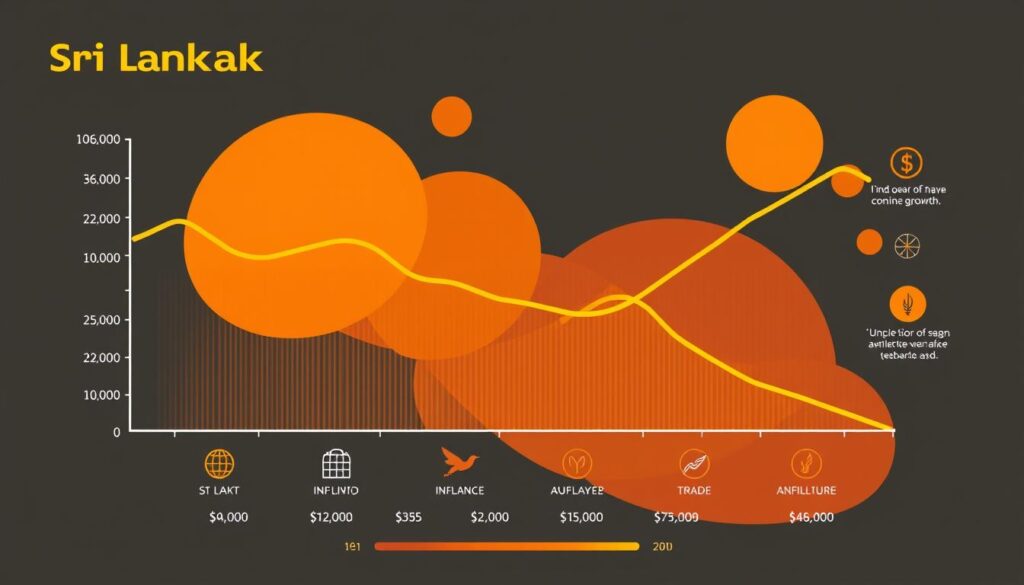Sri Lanka: New Education Initiatives Announced by Govt
Sri Lanka’s government has unveiled groundbreaking education reforms. These policies aim to improve schools and enhance student support services. President Ranil Wickremesinghe has prioritized significant funding for the education sector.
The 2023 education budget includes major investments in resources. These include free textbooks worth Rs. 20 billion and uniforms for over four million students. The government also provides comprehensive health coverage for students.
These policies show a strong commitment to improving education quality. They also ensure equal access for all students. The government aims to create South Asia’s most advanced educational system.
The ministry has introduced technology streams in National Colleges of Education. This move modernizes teacher education for the digital age. It equips instructors with skills for the global economy.
The reforms also focus on vocational education and skill development. A 13-year education strategy includes initiatives for vocational training programs. These programs will provide students with marketable skills for the job market.
Cambridge Climate Quest: Self-Paced Study Course for Grades 8-12
Cambridge University Press and Assessments has launched the Cambridge Climate Quest. This free self-paced learning program is for students in grades 8-12. It teaches essential knowledge about climate education and sustainability studies.
The course will be available in Sinhala, Tamil, and English. Scholars from Cambridge Zero have created high-quality materials that match the latest curriculum updates.
Comprehensive Program Offered in All Three National Languages
The Cambridge Climate Quest is accessible to students across Sri Lanka. By offering the course in three languages, it reaches a wide audience. This approach fosters a deeper understanding of sustainability among Sri Lankan youth.
Equipping Young Learners with Essential Knowledge of Climate and Sustainability
Students can progress through the course materials at their own speed. This flexibility allows them to fully grasp the concepts and engage with the content. Young learners can take ownership of their education in sustainability studies.
Cambridge Certification Upon Successful Completion
Students who complete the course will receive a Cambridge Certification. This recognition validates their knowledge of climate change and sustainability. The certification can open doors to future opportunities in sustainability studies.
Christine Ozden, Global Director of Cambridge University Press and Assessments, met with Sri Lankan leaders. She pledged support for this groundbreaking initiative. The collaboration highlights a shared vision of promoting climate education.
The Cambridge Climate Quest is a significant step in curriculum updates. It prioritizes sustainability and environmental awareness. Sri Lanka is setting a strong example for other nations in fighting climate change.
Government Announces Major Initiatives to Boost Education System
The Sri Lankan government has unveiled ambitious plans to improve education across the nation. Education Minister Susil Premajayantha announced the digitalization of the entire education system. This move aims to modernize learning and prepare students for the digital age.
The 2024 budget allocates Rs. 517 billion for education. This includes Rs. 237 billion for the Ministry of Education and Rs. 280 billion for provincial education. The funding allocation shows the government’s commitment to investing in education technology and resources.
A pilot program will launch across all grades in 2024. It will test new teaching methods, curriculum updates, and education technology integration. The government will use the results to refine reforms before nationwide implementation.
Digitalization of the Entire Education System
The government prioritizes digital literacy in education. This involves adopting advanced learning management systems and interactive digital content. Online platforms will improve communication between teachers and students.
Technology will create a more engaging and personalized learning experience. It will also provide teachers with tools to deliver high-quality instruction.
Special Programs for Children with Special Needs and Inclusive Education
The government has created special programs for children with special needs. These programs offer tailored support and resources to ensure quality education for all children.
An inclusive education system will promote diversity, equity, and acceptance in classrooms. Teacher training programs will help educators integrate technology and adapt to the new curriculum.
Sri Lanka’s commitment to education is commendable. With proper investments and support, the country can nurture well-educated, digitally savvy citizens. These future leaders will drive progress in the years to come.
Flinders University, Australia to Establish Offshore Campus in Sri Lanka
Flinders University, an Australian institution, plans to open a campus in Sri Lanka. This move will meet the growing demand for quality degrees in the region. Professor Colin Stirling recently met with President Ranil Wickremesinghe to discuss this project.
Flinders University has shown strong growth in research funding. Their annual income from research grants has increased by 140% in five years. In 2022, the university saw a 39% growth in research income.
The university focuses on cutting-edge fields. These include digital technologies, AI, defense technologies, and digital arts.
The new campus will offer various undergraduate and postgraduate degrees. Programs will cover Engineering, IT, Business, Finance, Marketing, and Medicine. This initiative will improve higher education in Sri Lanka.
Flinders University ranked first in Australia for postgraduate employment in 2021/22. Their industry partnerships provide students with valuable workplace experience. These collaborations help students gain skills needed in today’s job market.
The university is investing in strategic infrastructure. This includes the Health and Medical Research Building and the Factory of the Future. These investments aim to boost research capabilities and enhance the student experience.
FAQ
What is the Cambridge Climate Quest?
The Cambridge Climate Quest is a course for students in Grades 8-12. It teaches about climate and sustainability. Cambridge Zero scholars created the free course in Sri Lanka’s national languages.
How will the government digitize the education system?
The Sri Lankan government plans to digitize the entire education system. Minister Susil Premajayantha announced this initiative with local and foreign support. The goal is to create South Asia’s most advanced educational system.
When will the pilot program for new educational reforms launch?
The pilot program for new educational reforms will start in 2024. It aims to improve the country’s educational landscape. The program will bring changes to all grades.
How much funding has been allocated for education in the 2024 budget?
The 2024 budget allocates Rs. 517 billion for education. Rs. 237 billion goes to the Ministry of Education. Rs. 280 billion is for education at the provincial level.
What is the purpose of establishing an offshore campus of Flinders University in Sri Lanka?
Flinders University, Australia, will open a campus in Sri Lanka. It aims to meet regional demand for higher education. The campus will offer degrees and programs in various fields.
This new campus will enhance Sri Lanka’s educational offerings. It will give local students access to world-class education.



